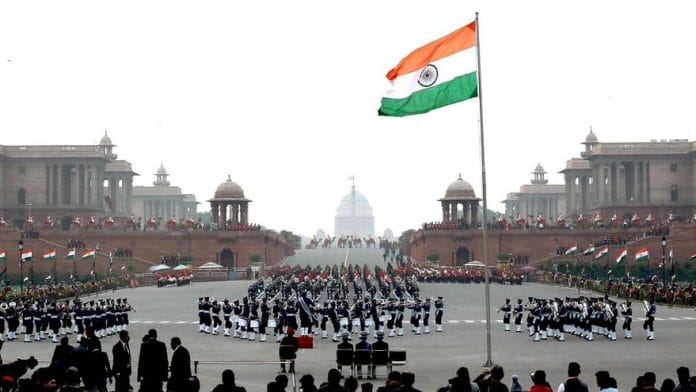New Delhi: Objections to proposed changes in pension and retirement rules for the three services — Army, Navy and Air Force — will be the first big challenge before the new Chief of Defence Staff (CDS) when he is appointed, sources in the defence and security establishment said.
It’s been two months since General Bipin Rawat, India’s first CDS, died in a helicopter crash.
ThePrint had reported last September that the Department of Military Affairs (DMA), which is headed by the CDS, is in the process of finalising an increase in retirement age to bring in commonality among various officer ranks across the three services.
However, the forces are objecting to the proposed changes, fearing that this will lead to early retirement of talented individuals and retention of deadwood, ThePrint has learnt. They are also of the view that any tinkering with pension rules will impact the forces in a negative way in the long run.
According to the changes proposed, the retirement age for every Colonel-rank officer in the Army and equivalent in the other services (Captain in the Navy, Group Captain in the Air Force) will be 57 years, while for Brigadiers and equivalent (Commodore in the Navy, Air Commodore in the Air Force), it will be 58 years.
While no changes have been proposed for Lieutenant General and equivalent ranks (Vice-Admiral in Navy and Air Marshal in Air Force), the retirement age was proposed as 59 for those at Major General and equivalent ranks (Rear Admiral in Navy and Air Vice-Marshal in Air Force).
The retirement age of Junior Commissioned Officers (JCOs) and other ranks in the three services belonging to logistics, technical and medical branches was also proposed as 57.
As far as pension rules go, the DMA has proposed that those taking premature retirement (PMR) with 20-25 years of service will get 50 per cent of the entitled pension, while those with 26-30 years of service will get 60 per cent of entitled pension, and those with 31-35 years will get 75 per cent of entitled pension. All those taking PMR after 35 years of service will get their full pension.
At present, an officer in the services can get full pension on seeking PMR after having served the pensionable age, which is 20 years of service.
Also Read: Defence procurement gets Budget boost, Modi govt hikes capital outlay to Rs 1.52 lakh crore
‘Could prove costly in long run’
Defence sources said the proposed changes could lead to a situation where an individual will seek PMR much earlier, knowing that the pension will be reduced to 50 per cent of the current entitlement even if they continue for 20-25 years. Leaving at an early age will allow better absorption of individuals in an alternative career with noteworthy work experience, they added.
Sources further told ThePrint that in the Navy, Executive Officers have the incentive of getting a Command appointment as service progresses. However, the same is not true for a technical or logistics or education officer, who would like to seek early PMR and get absorbed at a more beneficial juncture in life rather than lingering on till a time when domestic liabilities are amplified and the prospects of getting a lucrative second career are reduced because of increased age.
The reduction in pensionary entitlement would further act as a catalyst for these officers, who are better qualified (MTech/MBA/MSc), to be absorbed in a rewarding and well-paid second career, the sources said.
An increase in retirement age would also mean retention of deadwood, sources said, which will have an impact on teeth-to-tail ratio and result in an increase in the age profile of personnel serving the armed forces. They argued that every effort so far has been to ensure that the armed forces stay younger.
Forceful retention of officers till 57 years of service because of reduced pensionary entitlement on seeking PMR, and taking away the option of seeking full pension at PMR at 41 years of age (after 20 years of service) will be more costly in the long run, according to sources.
This, they argue, will result in the officer being paid 100 per cent salary for 16 additional years at a senior pay level as compared to paying him 50 per cent of the salary as pension, and a much lower salary to a younger (junior) officer in the lower pay level.
(Edited by Gitanjali Das)
Also Read: India’s defence budget is good news for Navy, BRO; bad news for China. But there’s a catch






